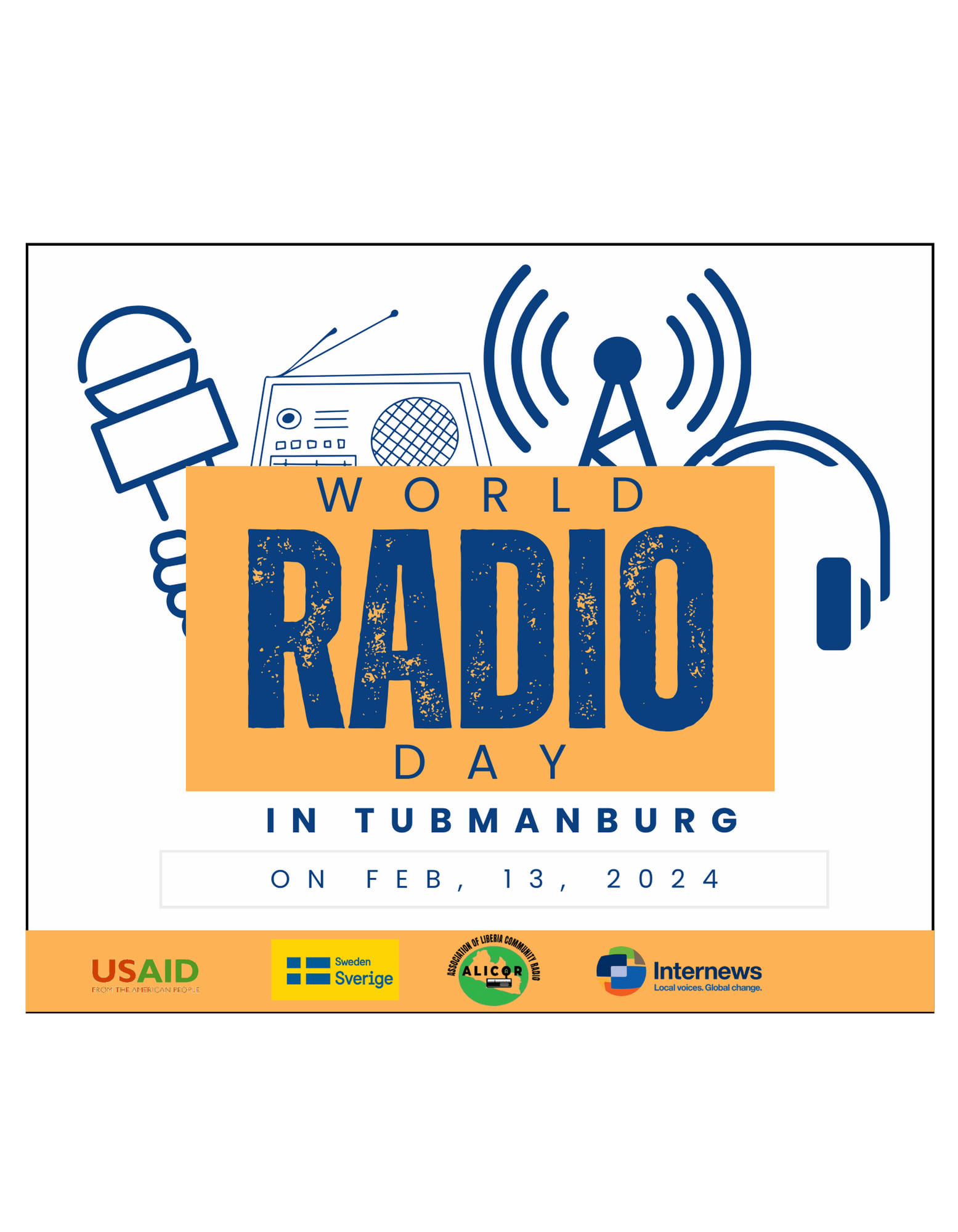Speakers at the World Radio Day celebration in Liberia have challenged radio journalists to been keen on maintaining accuracy and professionalism in their broadcasts.
Organized by the Association of Liberia Community Radio (ALICOR), the official celebration took place in Tubmanburg, Bomi County, with the support of Internews under its USAID funded Liberia Media Activity, and SIDA radio content syndication project.
Former community radio manager, Nyan Flomo who is now Nimba County electoral District #2 Representative presented the keynote address. Flomo called on community radio journalists to strive for accuracy in their broadcasts.
He said on many occasions, community radio journalists broadcast inaccurate information.
“In most parts of Liberia, whenever the word “radio” is mentioned, the first thing that comes to mind is information.” He however wondered “What types of information are we providing as community radio; how is it impacting our local population, and how have we changed our community because of the information we provide, how good is the quality and how available is it to the receiver?”
He encouraged radio producers to consider time dimensions as a conduit to providing quality information for public consumption.
He also emphasized content dimensions, considering accuracy, relevancy, and completeness, which means that the information provided by radio practitioners must be accurate.

Participants at the World Radio Day program in Tubmanburg. Photo by Magdalene Saah.
The speaker who is also the founder of Radio Kergheamahn in Ganta, Nimba County, intoned that the information provided to the public is also relevant when it is related to the information needs of the audience. He recommends the use of simple terms for the understanding of the listeners.
“We all should understand that radio continues to play a central role in information dissemination, because it’s the only medium that reaches out to a large number of Liberians, especially the illiterate in the urban and rural areas,” he said.
USAID boss, Jim Wright told reporters that while journalism is about freedom, he said the freedom in addition to professionalism make up the accuracy. He praised the free environment being provided for Liberian journalists and cautioned media practitioners to be responsible in proving information.
“Your commitment in advancing democracy in Liberia is impressive. Community Radio played a central role in promoting a free, fair and peaceful election in 2023. Informing the public and ensuring transparency,” Wright said.
He specifically hailed the elections debate which according to him gave the citizens the opportunity to hear their leaders during the just ended elections as well as information during the COVID 19 pandemic giving other lifesaving messages in local languages.
Josephine Nkrumah, the head of the Economic Communication of West African States (ECOWAS) called on journalists to understand the importance of information as a channel of driving peace or raising conflicts. “So, for you, being objective and understanding that you are accountable to your audience, remain important,” she noted.
“Your professionalism is key so I will urge you as journalists to continue to seek to educate yourself, continually seek to benefit from the capacity building that is unveiled by different people, seek to learn from one another, and learn radio’s best practices well.”
Swedish Development Cooperation’s Deputy Head of Mission, Johan Romare who is also a career journalist challenged reporters to be credible, by employing accuracy and balanced reporting.
World Radio Day has been observed since 1924 and February 13, 2024, marks its 100 years of celebration, while it was ALICOR’s 13th official celebration.
Five community radio journalists receive awards in different categories for excellent journalism as part of the official celebration. The day was observed under the theme, “Radio; A Century Informing, Entertaining, and Educating”.

